Australian MPs call for scrutiny of China amid coronavirus pandemic
Parliamentarians have lashed out at the Chinese Communist Party saying they should not ‘kid themselves’ if they think Australians will forget where the new coronavirus came from.
Coronavirus
Don't miss out on the headlines from Coronavirus. Followed categories will be added to My News.
- Easy explainer: Supermarket virus myths debunked
- COVID-19: Global cities turn into hospitals makeshift morgues
Exclusive: Australian Parliamentarians have launched an extraordinary attack on the Chinese Communist Party, warning of economic consequences and saying it would not be allowed to escape responsibility for the coronavirus.
Several MPs warned there would be a resetting of the relationship between Australia and its biggest trading partner, while one said the CCP was responsible for the deaths of thousands of people by covering up details of the early coronavirus outbreak.
The attack by Liberal and Labor MPs and Senators is one of the strongest by a group of parliamentarians anywhere in the world in response to the COVID-19 outbreak, and will deeply concern the Chinese Embassy in Canberra and leaders in Beijing.
The comments reflect concerns held by senior members of the Morrison government and will send the already fractious relationship between Australia and China to a new low.
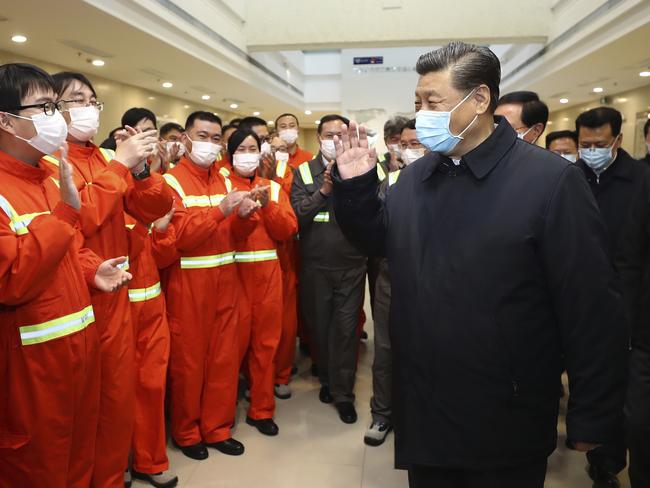
Two of the MPs, Liberal Andrew Hastie and Labor’s Anthony Byrne, said there would have to be a discussion about a new relationship between China and Australia.
The men are chair and deputy chair of the Joint Parliamentary Committee on Intelligence and Security and have close ties to Australia’s intelligence community.
They are also known as China hawks.
“The Australian people aren’t mugs. They know how COVID-19 started and how the CCP lied about it,’’ Mr Hastie, from Western Australia, told News Corp.
“They can send all the medical supplies in the world but we aren’t easily bought off. We need to have a national conversation about never letting ourselves be so vulnerable again.’’
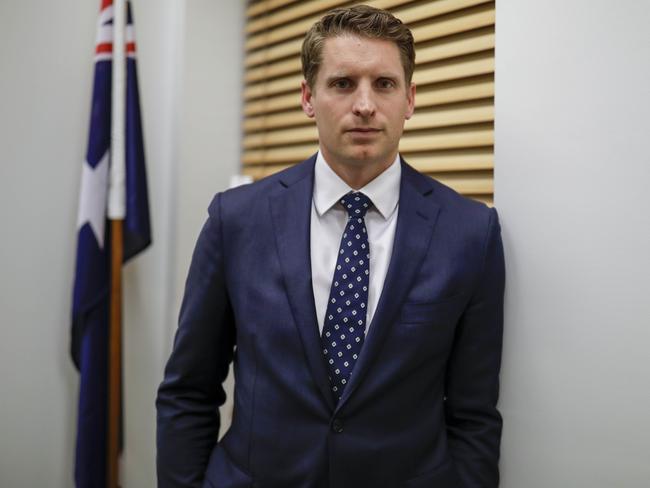
Mr Byrne, a Victorian, said there had to be a “fundamental realignment in our approach and how we relate to China.’’
“This crisis has exposed enormous fault lines in the global supply chain and illustrated why we need, in certain strategic areas, the capacity to manufacture essential items onshore,’’ he said.
“This conversation is already happening in supermarkets, florist shops and construction sites across the country.’’
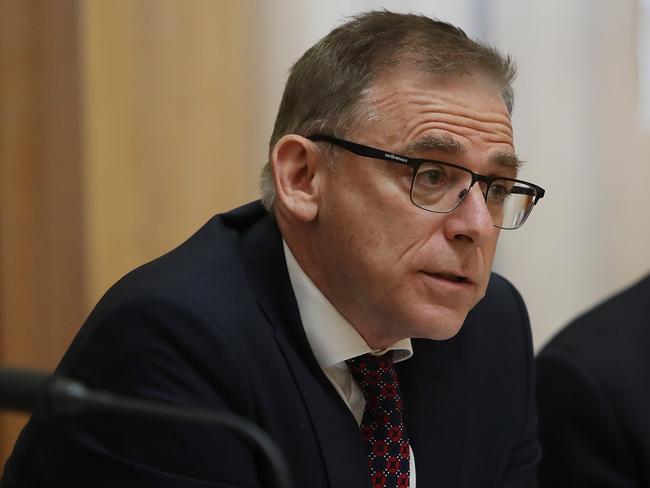
NSW Liberal Dave Sharma said any nation that sought a leadership role, as China did, must be held to higher standards.
“Any nation that releases in an uncontrolled fashion nuclear material for instance, or chemical weapons, or allows those to escape from its control would rightly be subject to criticism in the councils of the world,’’ he said.
“There will need to be a pretty forensic look at where coronavirus emerged from, how it escaped, how it left China, did China put in place the right steps and were they responsible in how they not only informed the world but dealt with the rest of the world on this issue.’’
Mr Sharma, a former diplomat, said Australia needed to ensure its “sources of prosperity’’ were diversified.
“What this crisis has shown particularly on the education and tourism side, is that we are dangerously reliant upon a single market, namely China, particularly for foreign students but also for tourism.’’
MORE NEWS
Tap and go rises to $200 limit
How to keep workplace culture alive while remote
Real estate agents face fines, jail for superannuation advice
Property buyers put straight onto hardship provisions

He said the wider economy, and particularly the tourism and the university sectors, would find a way to diversify.
“This isn’t about being anti-China, it’s just making sure we have got risks evenly distributed. It’s prudent national management,’’ he said.
“A lot of countries after this crisis will be looking at their supply chain vulnerabilities and seeing whether they’ve got critical capabilities onshore to meet their national needs if the world trading system is interrupted in this way again.
“I think you’ll see a lot of countries reflect upon some of the kind of elements of globalisation that have probably reached a high water mark over the last year or two and some of that pendulum will swing back towards people worrying a bit more about interruption and reliability and things like that.
“I think the pendulum is swinging back towards the nation state. Nation states have been the main vehicles for managing this crisis.’’
China was furious when Australia enacted foreign interference laws, including a register of foreign lobbying activities, and locked Chinese telco Huawei out of Australia’s broadband and 5G network upgrades.
A crackdown by the Foreign Investment Review Board announced this week which will see all foreign bids scrutinised in order to protect distressed Australian companies from being snapped up by overseas interests has also been interpreted as a move to stop China increasing its assets in Australia.
Victorian Liberal Tim Wilson attacked China’s propaganda efforts in the wake of the virus outbreak.
“The Chinese Communist Party’s deliberate strategy to suppress awareness of the virus led to this pandemic, it will not be forgotten and has shredded their credibility across the globe,’’ he said.
“No-one is fooled by the CCP’s attempt to pump misinformation to escape their responsibility for the transmissions of COVID-19 and the deaths of thousands.
“As countries stabilise the health of their populations and economics there will justifiably be a focus on the CCP’s culpability and the consequences of their actions that has inflicted pain on the world.’’
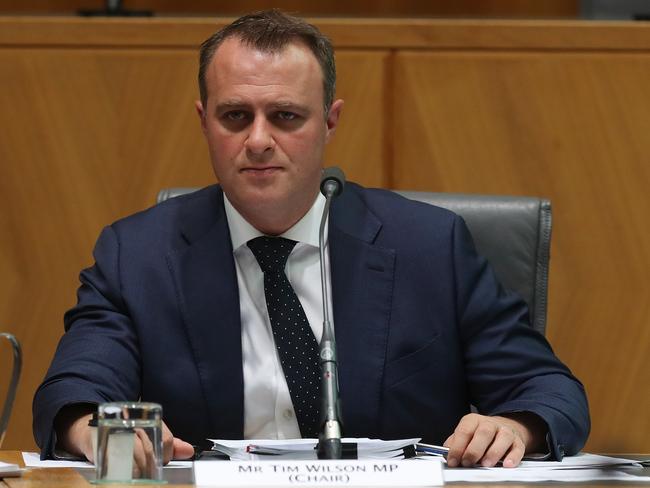
Another member of the so-called Wolverines – a group of MPs concerned about China’s creeping influence in Australia – Liberal Senator for Victoria James Paterson, said at an appropriate time “Australia needs to comprehensively reassess our relationship with China.’’
“In the meantime, the Chinese Communist Party should not kid themselves that Australians are falling for their campaign of disinformation. We know where the virus came from and we won’t forget it.’’

Victorian Labor MP Julian Hill said people should “rightly be angry at the initial cover-up by the CCP and its failure to give the world more time to prepare, comparable to the Soviet Union and Chernobyl.’’
He also raised concerns about the erratic response by the US to the virus outbreak.
“It’s important and disturbing to me to reflect on the utter absence of US leadership in a global crisis … arguably the first major emergency for 100 years when the US has completely failed in its traditional global leadership,’’ Mr Hill said.
He said this could have profound implications, and worried him deeply as someone who valued US leadership and the Australian-American alliance.
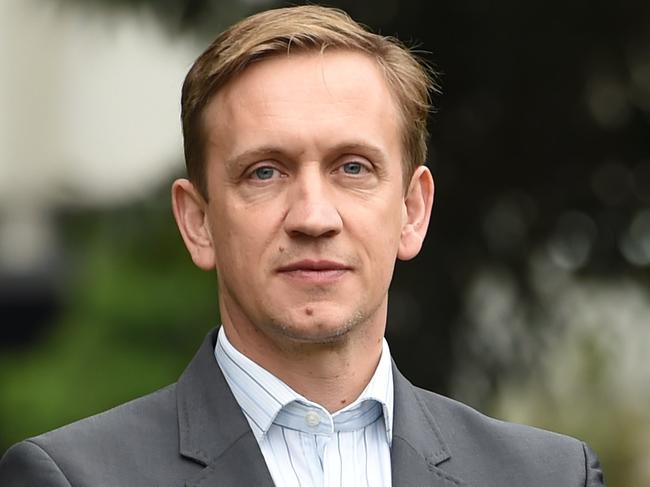
South Australian Liberal Senator Alex Antic said: “Australians are now rightfully asking why the Chinese Communist Party should not foot the bill for the COVID-19.
“I think that’s a question which Australia and its allies should be posing once the health situation has settled,’’ he told News Corp.

Queensland LNP Senator Amanda Stoker said there were serious questions around the “adequacy and honesty’’ of the CCP’s early response to the virus outbreak.
“The time for doing so will come as soon as the health and economic situation is stabilised,’’ she said.
“China’s claim to be a responsible world leader cannot be accepted when these matters hang under a cloud.’’
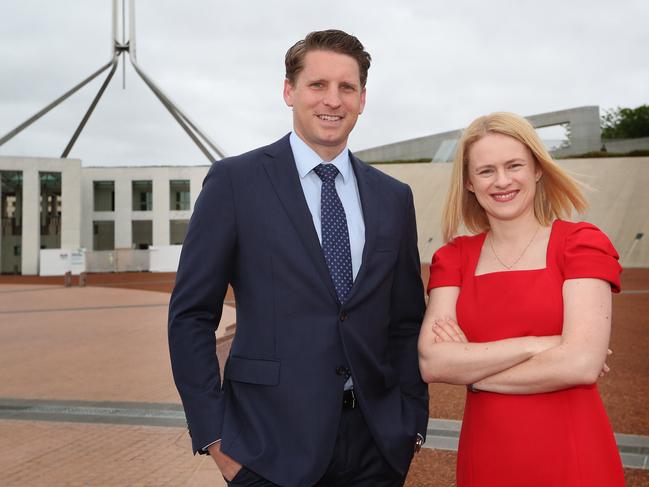
Victorian Labor Senator Kimberley Kitching, who has previously expressed concern about Chinese influence, said China’s actions on the global stage had, for a long period, been transactional.
“There is a growing acknowledgment in the Australian Parliament, across all parties, that the current status quo when engaging with Beijing may need to reflect a values system with which Australians are comfortable,’’ she said.

“In addition, a serious discussion will need to be had on economic and security capabilities.
“To go to the coronavirus pandemic, the robbing of Peter to pay Paul is simply not acceptable. “Australians will not accept Beijing putting the call-out to owners of companies around the world to send critical medical supplies back to the mainland, to then position themselves as philanthropists through an attempt at ‘mea culpa’ diplomacy.’’
Originally published as Australian MPs call for scrutiny of China amid coronavirus pandemic


